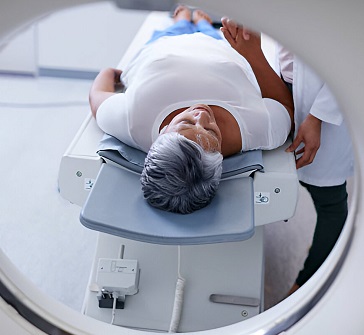 Book Appt.
Book Appt.
 Call Now
Call Now


Mouth cancer is defined as cancer that arises in any area of the mouth (oral cavity). Mouth cancer can affect the lips, gums, tongue, inner cheek lining, roof of the mouth, and floor of the mouth (below the tongue). Oral cancer, or oral cavity cancer, is a type of cancer that develops inside the mouth. Mouth cancer is one of several malignancies classified as head and neck cancers. Mouth cancer and other head and neck malignancies are frequently treated similarly.
Symptoms
Mouth cancer symptoms may include persistent lip or mouth sores, a white or reddish patch inside your mouth, loose teeth, growth or lump within your mouth, mouth discomfort, earache, and difficulty or uncomfortable swallowing.
Causes
Mouth cancers originate when cells on the lips or in the mouth change (mutate) their DNA. A cell's DNA includes instructions that teach it what to do. The mutations instruct the cells to continue growing and dividing when healthy cells would perish. Abnormal mouth cancer cells can accumulate and form a tumor. They may spread inside the mouth over time and to other areas of the head and neck, as well as other sections of the body.
Mouth cancers typically start in the flat, thin cells (squamous cells) that line your lips and the inside of your mouth. Most oral malignancies are squamous cell carcinomas. It is unclear what causes the mutations in squamous cells that contribute to mouth cancer. However, doctors have found factors that may raise the risk of oral cancer.
Risk factors
Tobacco, strong alcohol use, excessive sun exposure to your lips, a sexually transmitted virus known as human papillomavirus (HPV), and a weaker immune system can all raise your chance of developing mouth cancer.
Prevention
Stop using tobacco or do not start.
Drink alcohol in moderation, if at all.
Avoid excessive sun exposure on your lips.
Regularly visit your dentist.
Diagnosis
Physical examination and tissue removal for testing (biopsy) are among the tests and methods used to diagnose oral cancer. Once mouth cancer has been discovered, your doctor will work to assess the extent (stage) of the malignancy. Mouth cancer staging tests can include:
Use a small camera to inspect your throat. During a procedure called endoscopy, your doctor may pass a small, flexible camera equipped with a light down your throat to look for signs that cancer has spread beyond your mouth.
Imaging testing. A variety of imaging techniques can help identify whether cancer has progressed beyond the mouth. Imaging examinations may include X-ray, CT, MRI, and positron emission tomography (PET) scans, among others. Not everyone needs each test. Your doctor will decide which tests are necessary based on your condition.
Mouth cancer stages are denoted by Roman numerals I through IV. A lower stage, such as stage I, denotes a smaller malignancy restricted to a specific location. A higher stage, such as stage IV, implies that the cancer has spread to other sections of the head and neck, as well as other parts of the body. Your doctor can select your treatment options based on the stage of your cancer.
Treatment
Treatment for mouth cancer is determined by the location and stage of the cancer, as well as your overall health and preferences. You may receive only one form of treatment or a combination of cancer treatments. Surgery, radiation therapy, and chemotherapy are among the treatment possibilities. Discuss your choices with your doctor.
Conclusion
Mouth and tongue cancer are dangerous illnesses that must be detected early and treated promptly to enhance survival rates. The most common causes are tobacco and alcohol use, as well as HPV infections. Recognizing the symptoms—such as chronic mouth sores, lumps, difficulty swallowing, and changes in the tongue or throat—is critical for obtaining prompt medical assistance. A physical exam, biopsy, and imaging tests are often used to confirm the presence of cancer and determine its spread. Once diagnosed, treatment options include surgery, radiation, chemotherapy, and newer medicines such as immunotherapy or targeted therapy, depending on the stage and location of the cancer.
SHALBY Sanar International Hospitals provides extensive medical procedures backed up with our state-of-the-art technology and a team of highly qualified & experienced clinical experts.

Grade 2 Endometrium Cancer | Ms. Robiyakhon | Uzbekistan | Dr. Archit Pandit | SHALBY Sanar

Male Breast Cancer Recovery Story | Dr. Archit Pandit | Cameroon | SHALBY Sanar

Ms. Nafisa’s Inspiring Breast Cancer Recovery | Dr. Archit Pandit | Uzbekistan | SHALBY Sanar International Hospitals

Stage4 colon cancer is curable - Colon cancer with liver metastasis | Kenya | Dr Archit Pandit

Patient from Kenya Treated by Dr. Archit Pandit | SHALBY Sanar International Hospitals

Double Cancer Victory: Mrs. Salma Kapoor's Inspiring Recovery Story | Dr. Archit Pandit

Patient from Uzbekistan Treated by Dr. Archit Pandit | SHALBY Sanar International Hospitals

Patient from Uzbekistan Treated by Dr. Archit Pandit | SHALBY Sanar International Hospitals

Successful Carcinoma Buccal Mucosa Surgery of a Patient from Nigeria by Dr. Archit Pandit

Successful Colon Cancer Surgery of Mr. Faraidun Kaka Bra Amin Amin's from Iraq | Dr Archit Pandit

Miraculous Recovery of a patient from Uzbekistan battling Ovarian Cancer | Dr. Archit Pandit

Successful Cancer Detection & Surgery by Dr. Archit Pandit | SHALBY SHALBY Sanar International Hospitals

Successful Colon Cancer Treatment of a patient from Iraq by Dr Archit Pandit | Surgical Oncology

Successful Glottis Mass & Carcinoma Vocal Cord Treatment of a patient from Iraq by Dr Archit Pandit

Successful Stage 4 Colon Cancer Treatment of a patient from Kenya by Dr Archit Pandit

Surviving the Odds: 56-Year-Old's Journey with Recurrent Carcinoma Vocal Cord | Dr. Archit Pandit

Surviving Recto-Sigmoid Cancer: Mr. Syamand Ahmed's Inspiring Journey

Success Story: Iraqi Patient's Liver Tumour Treatment at SHALBY Sanar International Hospitals

Cytoreductive Surgery Success: Iraqi Patient's 30cm Ovarian Tumor Removed Safely

Beating Liver Cancer: Mr. Abdirashid's Inspiring Story

Ms. Nejood's Success Over Pancreatic Cancer: A Remarkable Journey

Transforming Smiles: Revolutionary Buccal Commando Procedure

Wide Local Excision Surgery & Microvascular Reconstruction of a Cancer patient

Successful Surgery of Esophgeal Cancer

Successful Lung Cancer Surgery of Ms. Jerioth Wanjiru from Kenya

Para Thyroidectomy on Pt Jawad Kadhim Tweli from Iraq

Dr Archit Pandit discusses the fascinating case of Geeta Rani
Our doctors pen down their research findings and experiences from time to time. Their words provide deep insight into the latest techniques, technologies and other advancements in healthcare. It provides expert answers to all kinds of health questions for real-life issues.
VIEW ALL




Since the day of its foundation, SHALBY Sanar International Hospitals is committed to provide comprehensive healthcare services. It regularly organizes awareness programs in its premises and encourages outdoor healthcare activities and camps with an intent to put focus on preventive healthcare.
VIEW ALL